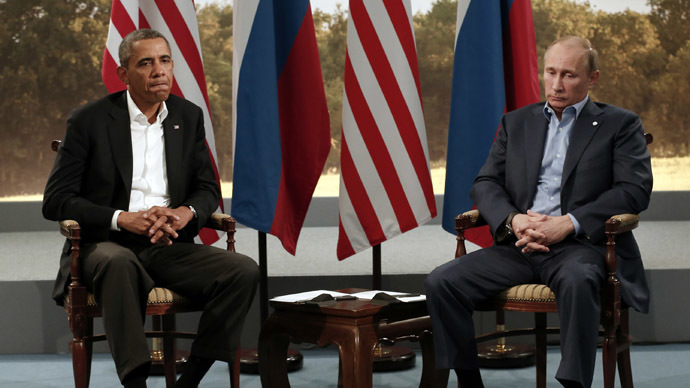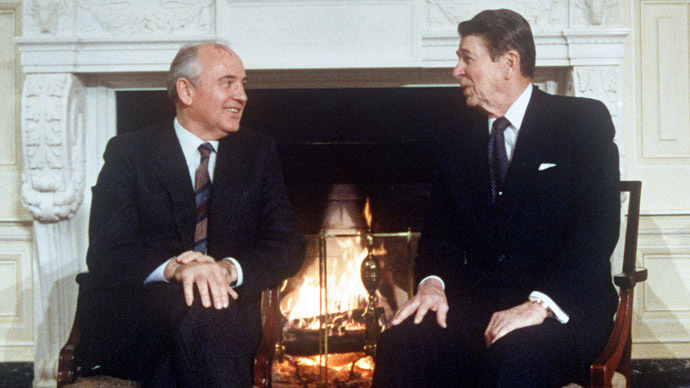‘US’s real concern – Russia switching from commodity export to industrial development policy’

The US fears that Russia might depart from its trajectory of being a major commodity export economy two one that launches a national industrial development policy, Jeffrey Sommers from the University of Wisconsin-Milwaukee told RT’s In the Now show.
RT:Some would say Cold War concepts never fully ended but why are we seeing such bump in rhetoric now?
Jeffrey Sommers: It really started with the operation that Russia launched with South Ossetia and Abkhazia following the US’s efforts to bring the Republic of Georgia into NATO.And then of course it has certainly increased with the recent conflict in Ukraine. I would say that in addition to that, the great fear of the US as a kind of a declining power is that Russia might depart from its trajectory of the past two decades of being a major commodity export economy two one that launches a national industrial development policy. This is something that the US really fears.
RT:CNN is launching a documentary series called the Cold War. What is their message going to be?
JS: It is an old comfortable narrative for Americans: the fact that Russia is bad but the US is good, that the US is a peaceful nation, that Russia is inherently aggressive. So it is just a default to these old familiar concepts. But the real fear of the US regardless of whether or not it has a potential for being realized is the fact that Russia would again begin to referencing the old Apple computer ad campaign of the 1990s – “think different.” And they started thinking differently about economic policy - not necessarily reprising what was done during the Soviet period - but acting more in its national interest and beginning to reorient away from just being a major exporter of commodities and capital to a nation which re-launched some kind of industrialization program. That is the real concern of the US.

RT:How serious is the message that we are seeing: “Russia is bad, we’re good, we think right.” Is that a policy or just old habits?
JS: This is a combination of both. The US should be really looking to Russia as an ally that could help it deal with the Islamic extremists and any other number of problems. But instead it is acting on its fear, its insecurity again of being a declining power and wanting to see Russia within this old framework, the country that is expansionist.
RT:How has the rhetoric changed over the years?
JS: The tone was very different in the 1990’s. At that time the US was pretty happy with the direction that Russia was going in and there was no longer a threat of communism. But there is always this fear that Russia could always return, from the perspective of the US, to a broken state. By broken state I mean one that was acting for its national interest not just for the United States’ interest. We have to remember that in the 1990’s when Boris Yeltsin shelledwith alacrity and brought the tanks in against the dissidents contained within the Russian Parliament that were democratically elected in 1993 he was positioned by the US media and the US government as the “darling” of the United States doing what needed to be done.
RT:That is so interesting that in 1990’s protesters were the bad guys, and now they are the heroes.
JS: The great fear in 1990’s was that the protestors would interrupt the kind of neoliberal reforms that were underway which really frankly reduced Russians to scavengers in a kind of borderline economy. It was an absolute disaster. I am sure you are familiar with some of the social indexes from that period in terms of early deaths, suicides, alcoholism decline in live births. It was really a tragedy for the Russian people. And the US government was applauding that, not because it was interested in seeing Russia destroyed but it was interested in Russia again maintaining its position as an exporter of capital to the US, to the UK, and also an exporter of raw materials which was keeping raw material costs down on global markets and thus helping to fuel the great economic boom that we saw in the 1990’s in the US and the UK. And again the US supported Yeltsin in 1996 with this reelection…
RT:What is a way to tone down the tension? Can Russia do anything to help its image abroad?
JS: Unfortunately, there is not a whole lot that can be done. That doesn’t mean nothing can be done. What it can continue to do is to assert that it wants peaceful cooperation with the West and to continue to propose it, no matter how belligerent the US or some of the Western powers continue to be. The message will soon get out that Russia is not the problem if it does this. And of course it will be difficult because it is somewhat insulting to continue to engage a partner from the perspective of wanting peace but not getting it. That said, the Russian government should continue pursuing its own economic self-interest.
The statements, views and opinions expressed in this column are solely those of the author and do not necessarily represent those of RT.
The statements, views and opinions expressed in this column are solely those of the author and do not necessarily represent those of RT.












